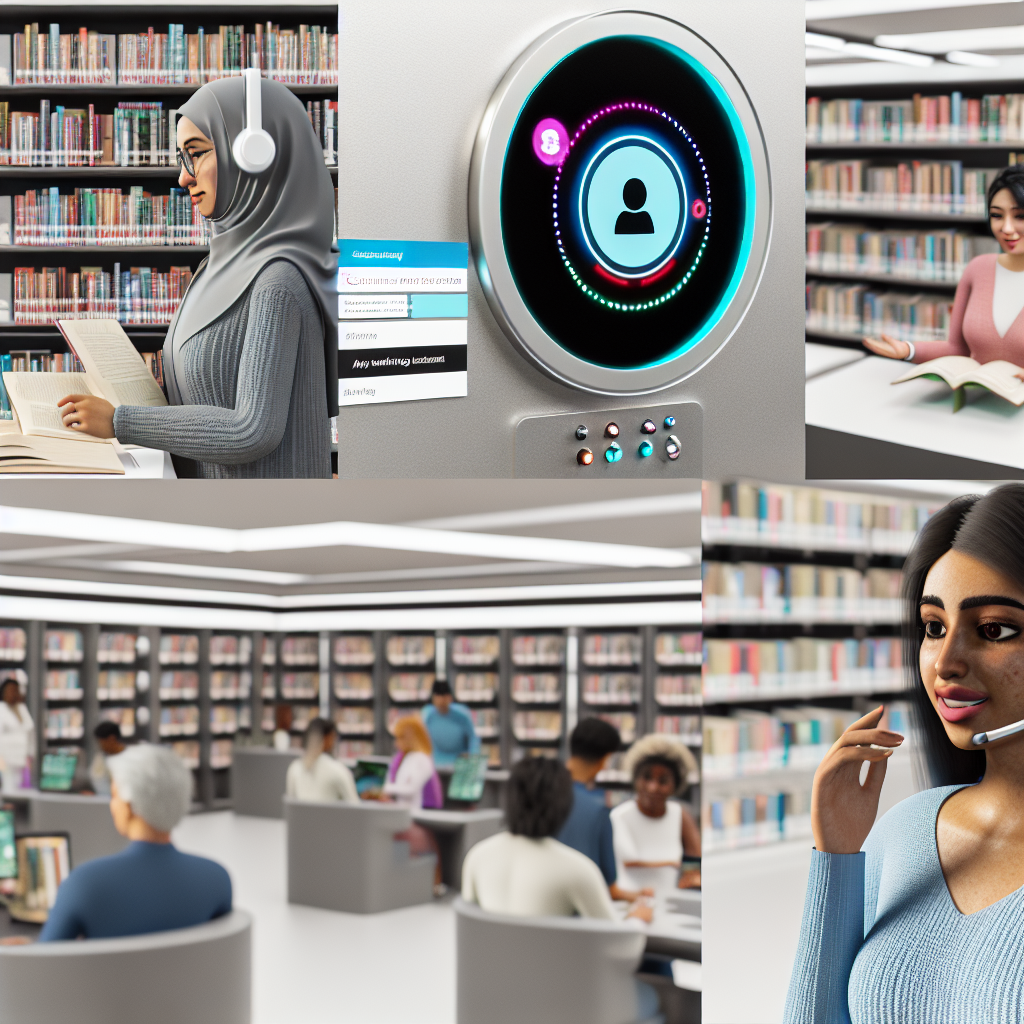Introduction
In an increasingly digital world, libraries are transforming their services to meet the evolving needs of patrons. One significant advancement that has emerged in this transformation is the integration of artificial intelligence (AI) to gather customer insights. The capability of AI to sift through vast amounts of data and extract meaningful patterns offers libraries a powerful tool to enhance service delivery. This article explores the various ways AI-driven customer insights can revolutionize library services, specifically focusing on book reservations, event scheduling, and customer support. Through these case studies, we will illustrate the profound impact of AI on improving user experience and operational efficiency.
AI-Driven Insights for Book Reservations
One of the primary responsibilities of libraries is to manage book reservations effectively. Traditionally, this process could be cumbersome, leading to frustration for both staff and patrons. However, AI-driven customer insights can streamline this process in several ways. For example, by analyzing borrowing patterns, libraries can predict which books are likely to be in high demand. This understanding allows librarians to optimize their inventory, ensuring that popular titles are readily available.
Furthermore, AI can enhance the reservation system by offering personalized recommendations to users. By understanding an individual’s borrowing history and preferences, AI can suggest books that align with their interests, thereby creating a tailored experience. This personalized approach not only improves patron satisfaction but also increases the likelihood of successful reservations.
Additionally, AI can analyze peak times for bookings, enabling libraries to allocate resources more efficiently. For instance, if data indicates that many users prefer to reserve books on certain days or during specific times, libraries can adjust staffing or service hours accordingly. Overall, AI-driven insights in book reservations not only streamline operations but also foster a more engaging and user-friendly environment for patrons.
Enhancing Event Scheduling with AI Insights
Another critical area where AI can make a significant impact is in event scheduling. Libraries often host a variety of programs and events, ranging from author readings to workshops and community gatherings. The challenge lies in understanding what types of events will attract the most participants and when to schedule them for optimal attendance. Here, AI can play a pivotal role by analyzing past event data to identify trends and preferences.
Through machine learning algorithms, AI can predict the success of different types of events based on factors such as season, timing, and community interests. By examining previous attendance records, user surveys, and local demographics, libraries can tailor their offerings to reflect community needs. For instance, if data shows a consistent turnout for summer reading programs but lower participation in winter events, libraries can allocate resources to enhance summer activities while rethinking their winter strategy.
Moreover, AI can facilitate the scheduling process by automatically suggesting optimal times for events based on user preferences and availability. By minimizing scheduling conflicts and maximizing convenience for attendees, libraries can increase participation rates, fostering a vibrant community around library services.
In addition, by integrating AI insights into marketing strategies, libraries can effectively target communications to specific demographics, ensuring that event promotions reach those most likely to attend. This not only enhances engagement but also creates a sense of inclusivity among community members who may previously have been unaware of the library’s offerings.
Improving Customer Support with AI Technologies
Customer support is an essential function of any library, and AI can significantly enhance response times and support quality. Traditional customer service channels, such as phone calls or in-person inquiries, can sometimes lead to delays during high-demand periods. By leveraging AI-driven customer insights, libraries can optimize their support systems, resulting in more efficient and satisfying user experiences.
One effective application of AI in customer support is the utilization of chatbots. These AI-powered tools can answer frequently asked questions, assist with book searches, and even guide patrons through the reservation process at any time of day. By automating responses to common inquiries, libraries can free up staff to focus on more complex issues that require human intervention, thereby improving overall service delivery.
Moreover, AI can analyze customer interactions to identify common challenges or questions patrons face when using library resources. This can lead to targeted training for staff, as well as the development of self-help resources or FAQs, which can empower users to find answers independently. In this way, libraries can continuously evolve their support offerings based on real-time customer needs and feedback.
In addition to chatbots, AI can enhance personalization in customer service. By examining previous interactions and preferences, AI can tailor recommendations and responses. If a user frequently borrows articles related to a specific subject, for instance, the library’s AI system might suggest relevant new additions or upcoming events that align with their interests. This proactive approach fosters a more meaningful connection between patrons and library services, enhancing overall satisfaction.
Conclusion
The integration of AI-driven customer insights into library services represents a pivotal shift in how libraries can operate and serve their communities. By effectively managing book reservations, optimizing event scheduling, and enhancing customer support, libraries can create a more intuitive and user-focused experience. AI technologies provide librarians with the tools necessary to analyze data, predict trends, and personalize services, ultimately leading to improved engagement and satisfaction among patrons.
As libraries continue to evolve in the digital age, the effective use of AI signifies not just a technological upgrade but a fundamental rethinking of how services can be delivered. By embracing AI-driven insights, libraries are well-positioned to meet the diverse needs of their communities, ensuring that they remain relevant, accessible, and integral to the cultural fabric of society. In conclusion, the best usage cases for AI in library services demonstrate that the future of libraries is both bright and intelligent, guided by the insights garnered from understanding their patrons better than ever before.

